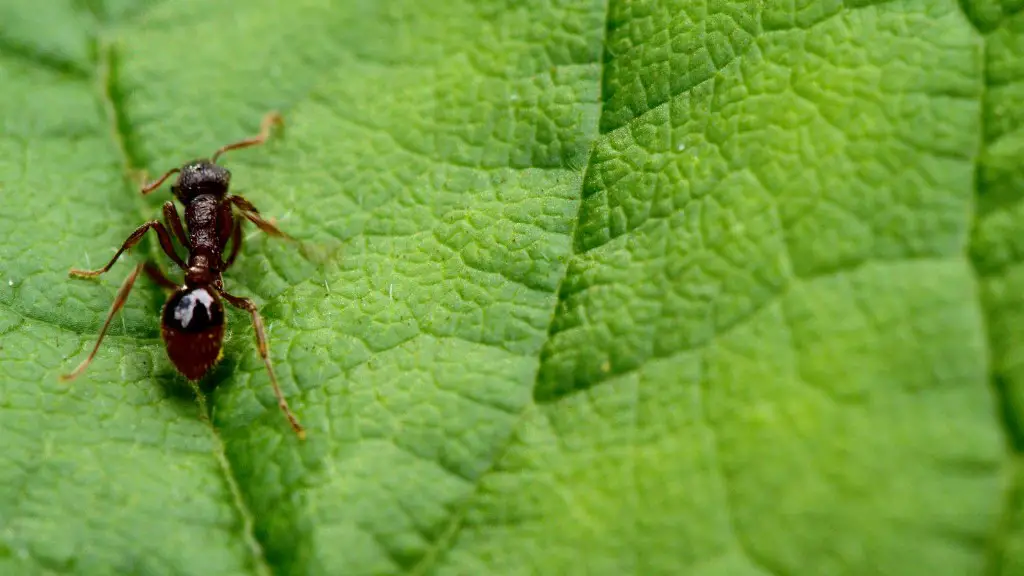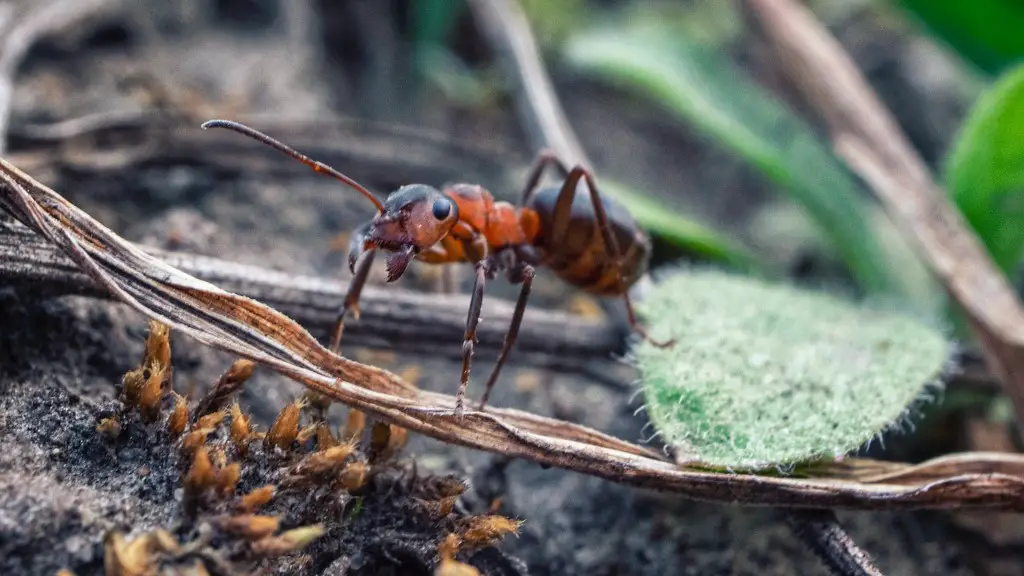Both boric acid and borax are natural and effective ant repellents for killing ants. Both have similar active ingredients, but differ in their application and effectiveness. We explore whether boric acid or borax is better for killing ants.
Boric Acid as a Pesticide
Boric acid is a naturally occurring compound found in the environment. It has been used in ant control treatments for many years. When applied correctly, it is an effective way to kill ants and prevent a future ant infestation. Although boric acid is intended to be used as an insecticide or pesticide, it can be dangerous if consumed by humans and animals.
Experts recommend using very low concentrations of boric acid in an ant control treatment. Too high a concentration can be too harsh for the ants and can harm the environment. The best way to use boric acid as an ant control treatment is to use a bait, such as sugar or honey, to attract the ants. The ants will then feed on the bait and ingest the boric acid, killing them.
Borax as an Insecticide
Borax is a natural compound found in many different cleaning agents. When used as an ant control treatment, it is effective in killing ants. Borax is safe for human and animal use, but caution must be taken if used in large quantities.
Borax works differently to Boric acid as it does not require a bait to be effective. It works by creating an unfavorable environment for ants, causing them to leave the area. Additionally, borax dehydrates ants, which kills them.
Which Is Better for Killing Ants?
When deciding which ant control treatment is best for killing ants, it is important to consider the environment and the type of ant infestation you are dealing with.
For instance, if you are dealing with an outdoor ant infestation, Borax is a better option as it does not require a bait to be effective. On the other hand, if you are dealing with an indoor ant infestation, Boric Acid is a better option as it is more targeted and specific.
When choosing between boric acid or borax, it is important to consider the safety implications. Neither option can be eliminated as hazardous, and both options should be used with care and caution.
Safety for Humans and Animals
When using boric acid or borax to kill ants, it is important to consider the safety implications for humans and animals. Boric acid is intended to be used as an insecticide, and therefore must be treated with care. If consumed, boric acid can cause harm and should always be used carefully.
Similarly, borax should be used with caution and should not be used in large quantities. When using borax, ensure that the area is well ventilated, as borax can be hazardous if inhaled in large doses. Additionally, both boric acid and borax should be kept away from children and animals.
Targeting the Queen
Both boric acid and borax can be effective ant control treatments, but it is important to target the queen ant if you want to eliminate the ant infestation completely. If the queen ant is not targeted and killed, the ant infestation will continue to reproduce and spread.
To target the queen ant, experts recommend using a bait such as sugar or honey with boric acid. Ants are attracted to sugar and honey, and the queen ant will ingest the boric acid, killing her and eliminating the ant infestation.
Conclusion
Ultimately, both boric acid and borax are effective ant control treatments, and which one is better for killing ants will depend on the type of infestation you are dealing with. When using either of these treatments, ensure that the area is well ventilated and the area is kept away from children and animals. Finally, it is important to target the queen ant if you want to eliminate the ant infestation completely.
Preventing Ants
Keeping Homes Clean
One of the best ways to prevent an ant infestation is to keep homes clean. Ants are attracted to food sources, and if food is left out or spills are left unattended, it can attract ants. Experts recommend cleaning up spills and crumbs immediately to avoid attracting ants. Additionally, it is important to store food in airtight containers and not leave garbage out for too long.
In addition to keeping a clean home, it is important to seal any cracks and crevices in walls and floors. If any ants are already in the home, sealing these cracks and crevices will prevent them from entering other rooms.
Keeping Outdoors Clean
Similar to homes, it is important to keep the outdoors clean to prevent an ant infestation. This means keeping the yard clear of debris, such as leaves and branches, as ants are attracted to these materials. Additionally, it is important to seal any cracks and crevices in outdoor walls and foundations to prevent ants from entering the home.
Finally, it is important to keep any outdoor garbage cans well sealed and to avoid leaving food out. Ants are attracted to food sources, and leaving food out can attract them to your home.
Using Natural Repellents
Many people use natural repellents such as essential oils or cayenne pepper to keep ants away from their homes. Essential oils such as peppermint and tea tree oil have ant repellent properties, and cayenne pepper can be sprinkled in areas that are prone to ant infestation. Additionally, some people use a mixture of water and vinegar to keep ants away from their homes.
Controlling an Ant Infestation
If an ant infestation has already occurred, it is important to take action quickly to prevent it from spreading. The most effective way to do this is to use boric acid or borax. Boric acid is a natural and effective ant repellent, and it can be used as a bait to attract and kill ants. Borax is also effective and works by creating an unfavorable environment for the ants.
When using either of these treatments, ensure that the area is well ventilated and the area is kept away from children and animals. Additionally, it is important to target the queen ant if you want to eliminate the ant infestation completely.

